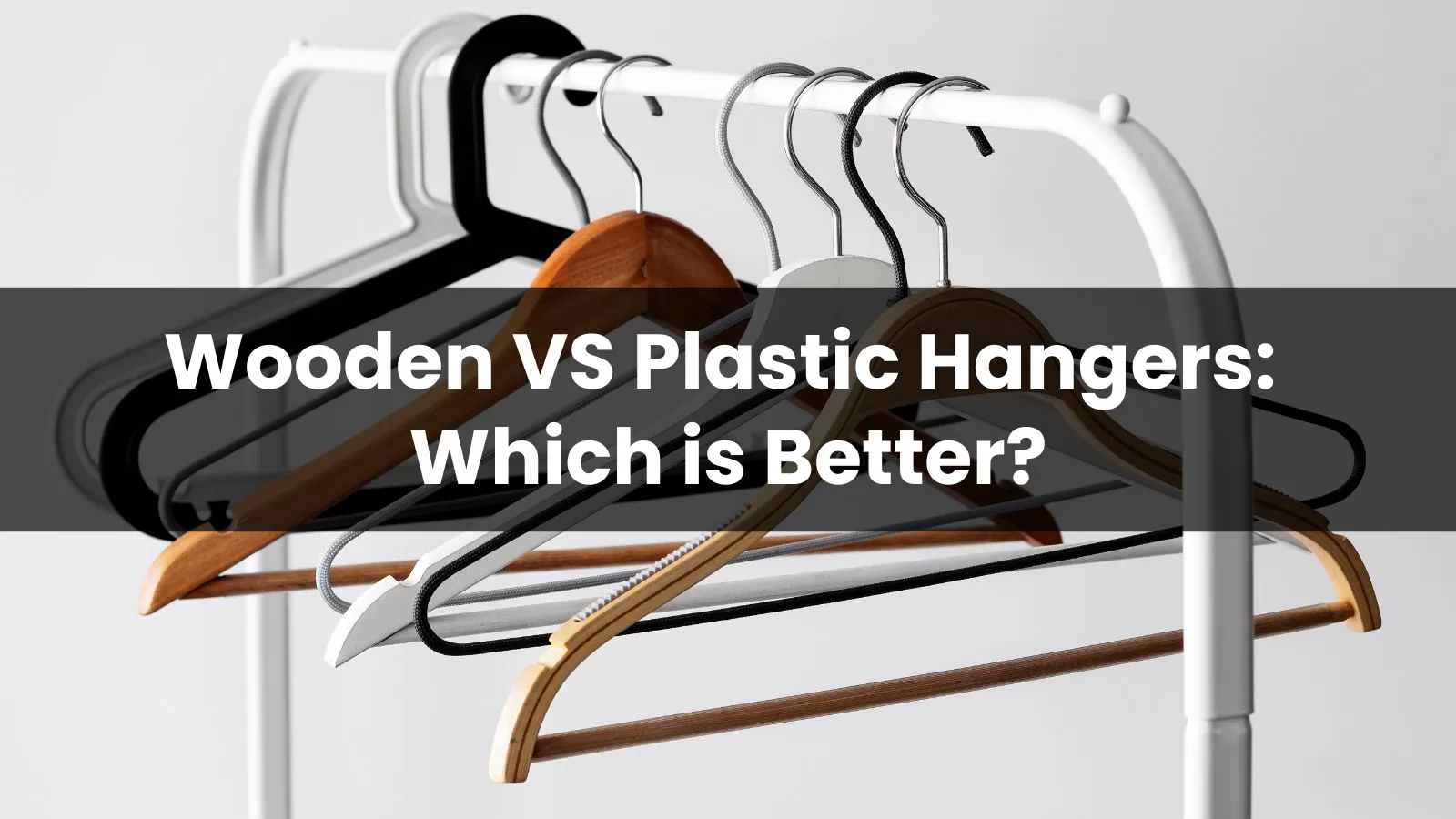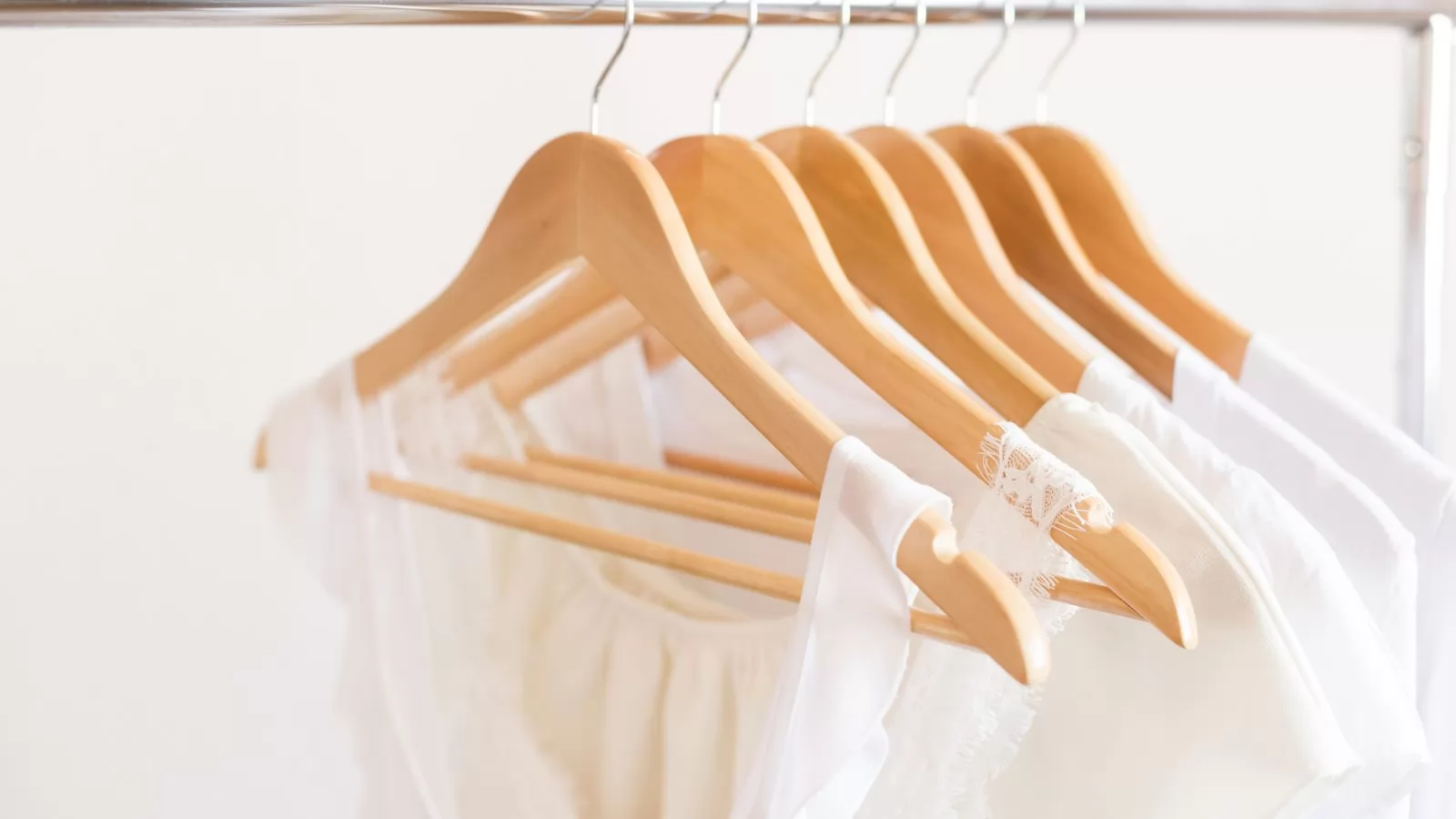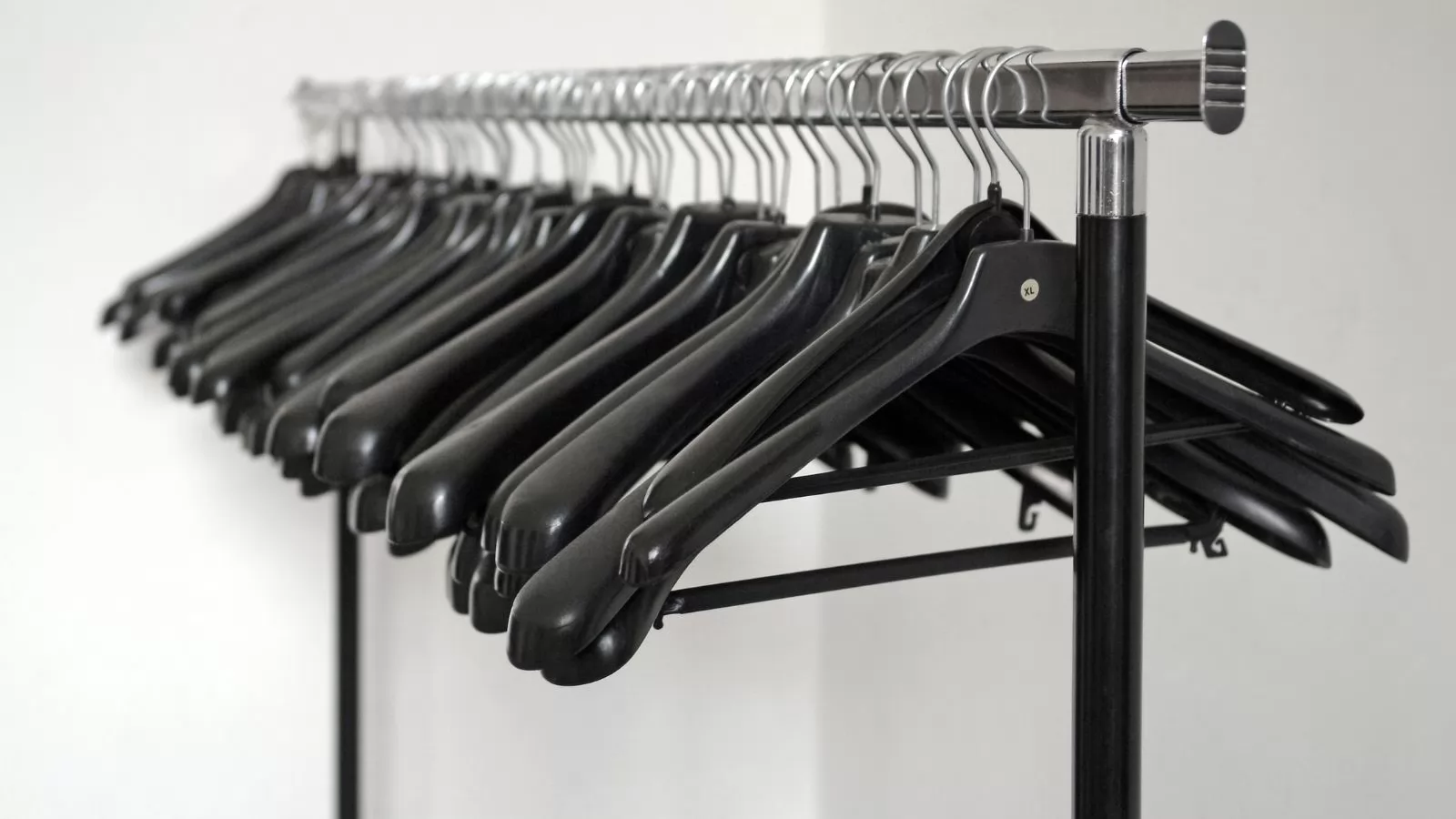


In the world of closet organization, choosing the right hanger is a critical decision. Not only do hangers impact the longevity of your clothes, but they also play a significant role in maintaining a neat and organized space. When it comes to hangers, the debate between wooden and plastic options is a common one. Each type of hanger has its own set of advantages and disadvantages, making the choice a matter of personal preference and specific needs. In this article, we will delve into the details of wooden and plastic hangers, comparing their features, benefits, and drawbacks to help you make an informed decision.
When you think about organizing your closet, the humble hanger plays a crucial role. Among the various types available, wooden hangers stand out for their durability, elegance, and functionality. But what exactly are wooden hangers?
Wooden hangers are hangers made primarily from different types of wood. They come in various shapes and sizes to cater to different types of clothing. Unlike plastic hangers, which are mass-produced using synthetic materials, wooden hangers are crafted from natural wood, giving them a unique aesthetic and a sturdy build. They are often used in high-end retail stores and homes where maintaining the shape and quality of clothes is a priority.
One of the main advantages of wooden hangers is their strength. They can support heavier garments like coats, suits, and jackets without bending or breaking. Additionally, wooden hangers often feature a smooth, polished finish that prevents snagging and protects delicate fabrics. Many wooden hangers are also designed with contoured shoulders and notches, making them ideal for hanging dresses, blouses, and other garments that require extra support.
In terms of materials, wooden hangers can be made from a variety of woods, including cedar, maple, walnut, and bamboo. Cedar wood hangers, for example, are particularly popular due to their natural aromatic properties, which can help repel moths and insects, thereby protecting your clothing. Bamboo hangers, on the other hand, are praised for their eco-friendliness and sustainability, as bamboo is a rapidly renewable resource.
In summary, wooden hangers are a stylish, durable, and functional choice for organizing your closet. Whether you're looking to maintain the shape of your suits or add a touch of elegance to your wardrobe, wooden hangers are an excellent option.

Wooden hangers are crafted from a variety of woods, each offering unique characteristics that contribute to the hanger's overall quality and functionality. Common woods used include maple, cedar, walnut, and bamboo. These woods are chosen for their strength, durability, and aesthetic appeal.
The construction of wooden hangers typically involves shaping the wood into a smooth, contoured form that mimics the natural lines of the human shoulder. This design helps to maintain the shape of clothing and prevents stretching. Additionally, many wooden hangers feature notches or hooks for securing straps, making them versatile for a variety of garments.
The finishing process is also crucial in the construction of wooden hangers. A polished or varnished finish not only enhances the wood's natural beauty but also provides a protective layer that prevents splintering and damage to fabrics. Some hangers are also coated with a non-slip material to keep clothes securely in place.
Wooden hangers offer numerous benefits that make them a preferred choice for both personal and professional use:
Durability and Strength: One of the primary benefits of wooden hangers is their durability. Unlike plastic hangers, which can bend and break under the weight of heavier garments, wooden hangers are built to last. Their sturdy construction can support the weight of coats, suits, and jackets without compromising their shape.
Aesthetic Appeal: Wooden hangers bring an element of elegance and sophistication to any closet. The natural wood grain and polished finish add a touch of class that plastic hangers simply cannot match. This aesthetic appeal is particularly valuable in retail settings where presentation matters.
Clothing Protection: Wooden hangers are gentle on clothes. Their smooth surface prevents snagging and pulling, while the contoured shape helps maintain the form of garments. This is especially important for delicate fabrics and tailored clothing, ensuring that your items stay in top condition.
Eco-Friendliness: Many wooden hangers are made from sustainable sources, making them an eco-friendly option. Bamboo hangers, for example, are made from a rapidly renewable resource that grows quickly and requires minimal pesticides. Choosing wooden hangers can reduce your environmental footprint.
Despite their many advantages, wooden hangers do have some drawbacks that you should consider:
Cost: Wooden hangers are typically more expensive than plastic hangers. The cost of materials and the manufacturing process contribute to a higher price point. While they are a worthwhile investment for their durability and aesthetic appeal, the initial expense can be a consideration for some.
Weight: Wooden hangers are heavier than their plastic counterparts. This added weight can be a disadvantage when transporting large quantities or for those who prefer lighter options. However, this weight also contributes to their sturdiness and ability to support heavier garments.
Bulkiness: The thicker construction of wooden hangers can take up more space in your closet. While they are excellent for maintaining the shape of clothing, they may not be ideal for those with limited closet space. This bulkiness can be a trade-off for their protective qualities.
Plastic hangers are ubiquitous in closets worldwide, known for their lightweight and affordable nature. Unlike wooden hangers crafted from natural materials, plastic hangers are manufactured using synthetic polymers such as polypropylene or polystyrene.
These hangers are mass-produced in various shapes and sizes, catering to different clothing types and storage needs. They are widely used in both residential closets and retail environments due to their cost-effectiveness and versatility.
Plastic hangers typically feature a smooth, molded design that prevents snagging and damage to clothing. They often come with hooks or notches for securing straps and are available in a range of colors to suit personal preferences or branding requirements in retail settings.
While plastic hangers lack the natural aesthetics and durability of wooden hangers, they are a practical choice for everyday use, providing a lightweight and budget-friendly option for organizing your wardrobe.

Plastic hangers are made from synthetic polymers, primarily polypropylene or polystyrene. These materials are chosen for their durability, flexibility, and cost-effectiveness. The manufacturing process involves molding these polymers into the desired hanger shapes using injection molding or extrusion techniques.
The construction of plastic hangers is relatively straightforward, allowing for mass production and uniformity in design. This results in a wide variety of hanger styles, including standard shirt hangers, pant hangers with clips, and hangers with notches for securing straps. Some plastic hangers also feature non-slip coatings or padded surfaces to prevent clothes from slipping off.
Plastic hangers offer several advantages that make them a popular choice for organizing clothes:
Affordability: One of the primary benefits of plastic hangers is their low cost. They are significantly cheaper to produce than wooden hangers, making them an economical choice for both personal use and large-scale retail operations.
Lightweight: Plastic hangers are lightweight, making them easy to handle and transport. This is particularly beneficial for those with large wardrobes or for businesses that need to move and display large quantities of clothing.
Variety: Plastic hangers come in a wide range of shapes, sizes, and colors. This variety allows consumers to choose hangers that best suit their specific needs and preferences, whether it's for hanging delicate blouses, heavy coats, or coordinating with closet decor.
Durability: While not as durable as wooden hangers, plastic hangers are still relatively sturdy and resistant to damage. They can withstand regular use and are less prone to snapping compared to wire hangers.
Despite their benefits, plastic hangers also have some drawbacks that should be considered:
Environmental Impact: Plastic hangers are made from synthetic materials that are not biodegradable. This contributes to environmental pollution if they are not properly recycled. The production process also involves the use of fossil fuels, adding to their environmental footprint.
Less Aesthetic Appeal: Compared to wooden hangers, plastic hangers lack the natural, elegant look. They can appear cheap and less sophisticated, which may not be ideal for high-end retail environments or for those who prefer a more refined closet appearance.
Limited Durability: Although plastic hangers are durable, they are not as robust as wooden hangers. They can bend under the weight of heavier garments and are more prone to breaking over time, especially when exposed to extreme temperatures or rough handling.
When choosing between wooden and plastic hangers, it's important to consider various factors to determine which option best suits your needs. Both types of hangers have their own unique advantages and disadvantages, and their suitability can depend on your specific requirements and preferences.
| Aspect | Wooden Hangers | Plastic Hangers |
|---|---|---|
| Durability | High; sturdy construction supports heavy garments without bending. | Moderate; can bend or break under heavy garments. |
| Aesthetic Appeal | Elegant; natural wood grain enhances closet appearance. | Basic; lacks the refined look of wooden hangers. |
| Cost | Higher initial cost due to materials and craftsmanship. | Lower cost; affordable for personal and retail use. |
| Weight | Heavier; provides stability but may be cumbersome. | Lightweight; easy to handle and transport. |
| Environmental Impact | Generally more eco-friendly if made from sustainable sources. | Less eco-friendly; made from synthetic materials and not biodegradable. |
| Storage Space | Bulkier; takes up more space in closets. | Compact; ideal for smaller storage areas. |
Wooden hangers are renowned for their durability and strength. They are capable of supporting heavy garments like coats, suits, and jackets without bending or breaking. The sturdy construction ensures that they maintain their shape and provide reliable support over the long term. On the other hand, plastic hangers, while durable to an extent, can bend under the weight of heavier items and are more prone to breaking over time, especially if exposed to extreme temperatures or rough handling.
Wooden hangers add a touch of elegance and sophistication to any closet. Their natural wood grain and polished finish offer a classic, upscale appearance that plastic hangers cannot match. This makes wooden hangers particularly valuable in retail settings or for those who take pride in a well-organized and aesthetically pleasing wardrobe. In contrast, plastic hangers, although available in various colors and designs, generally lack the refined look of wooden hangers and may appear less sophisticated.
Cost is a significant factor when comparing wooden and plastic hangers. Wooden hangers tend to be more expensive due to the cost of materials and manufacturing processes. However, they are often seen as a worthwhile investment because of their durability and aesthetic appeal. Plastic hangers, on the other hand, are much more affordable and accessible, making them an economical choice for both personal use and large-scale retail operations.
Wooden hangers are heavier and bulkier than plastic hangers. While their weight contributes to their sturdiness and ability to support heavier garments, it can be a drawback when transporting large quantities or if you prefer lighter options. Additionally, their thicker construction can take up more space in your closet, which may be an issue for those with limited storage space. Plastic hangers are lightweight and less bulky, making them easy to handle and store, especially in smaller closets or for those who need to move their hangers frequently.
Both wooden and plastic hangers can protect clothing, but wooden hangers are often gentler on fabrics. The smooth, contoured design of wooden hangers helps maintain the shape of garments and prevents stretching, while the polished finish reduces the risk of snagging or pulling on delicate fabrics. Plastic hangers, though generally smooth, can sometimes have rough edges or seams that may catch on clothing. However, many plastic hangers are designed with non-slip coatings or padded surfaces to provide additional protection for garments.
The environmental impact of hangers is an important consideration. Wooden hangers, particularly those made from sustainable sources like bamboo, are generally more eco-friendly. They are biodegradable and can be recycled or repurposed, reducing their environmental footprint. Plastic hangers, however, are made from synthetic materials that are not biodegradable and can contribute to environmental pollution if not properly recycled. The production of plastic hangers also involves the use of fossil fuels, adding to their environmental impact.
In conclusion, the top 10 hanger manufacturers in the USA in 2024 are not merely industry giants; they are pioneers setting new benchmarks in manufacturing. Their dedication to innovation, eco-friendliness, and high standards reinforces their position as the best in the business. They always set the bar higher for the hanger market, making sure it's always associated with quality and innovation. Their efforts ensure that the sector will prosper in the years to come, propelled by creativity and a dedication to a more environmentally friendly future.
If you need a reliable hanger manufacturer, then it is recommended to contact Eisho. Eisho is a professional manufacturer and exporter of designing and manufacturing hanger products.







